When a client is diagnosed with cancer, knowing what foods to eat, how to stay nourished, and how to meal plan is so important. Meal planning can help clients feel better physically and mentally as they heal and withstand the side effects of their treatments.
Cancer treatments often come with many side effects that make cooking and eating a challenge. As a practitioner, you can create an approachable nutrition support plan for clients with simple meals and snacks to help them reach their increased nutrition goals, mitigate nutrition-related side effects, help the body rebuild tissue, boost energy, and increase strength.
In this article, we will cover:
- Key nutrients to include in your client's cancer support nutrition plan.
- Meal ideas to manage nutrition-related side effects from cancer treatment.
- Preparing food safely during cancer treatment.
Key Nutrients in Meal Planning for Cancer Support
Antioxidants
Free radicals are by-products of the body's normal chemical processes and in active cancer, these molecules attack healthy cells to alter their DNA and allow tumors to grow. Research shows that antioxidants support the body's ability to fight and heal from disease and protect the body from the damaging effects of free radicals.
Colorful varieties of fruits and vegetables such as grapes, apples, artichokes, blackberries, leafy greens, and beans are particularly good sources of antioxidants to add to a cancer client’s nutrition plan. Nuts, seeds, avocados, and plant-based oils are antioxidant-rich foods that should be incorporated into the plan to provide healthy fats and additional calories which can help with low appetite from cancer treatment.
Tip: Use That Clean Life's filters to easily find recipes with antioxidant-rich foods like this Poached Salmon, Artichokes & Sweet Potato recipe.
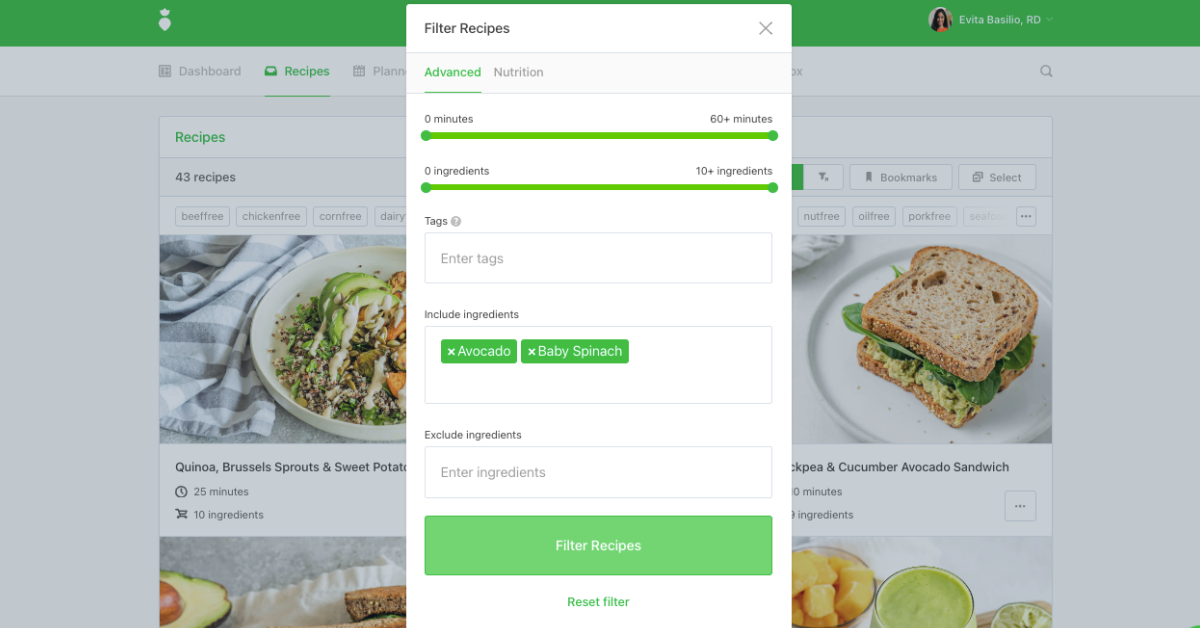
Sugar-Free & High Fiber Foods
Limiting added sugars and adding high-fiber foods such as whole grains, fruits, vegetables, nuts, and legumes can help clients feel more full and prevent constipation, a common treatment side effect. When choosing grains, opt for nutrient-dense grains that provide complex carbohydrates for energy and B vitamins which have been associated with the reduction of cancer symptoms.
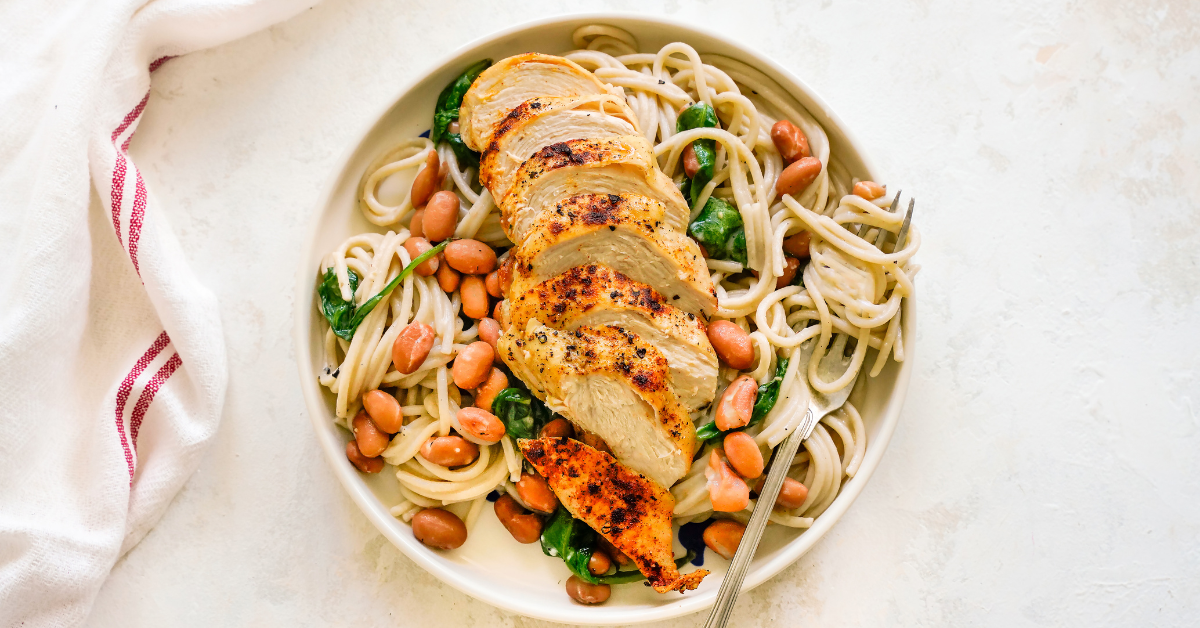
Immune Support
Cancer and cancer treatment can weaken the immune system and make clients with cancer more prone to infection. Certain nutrients can help surgery wounds heal more quickly and repair and rebuild damaged tissue.
To create an immune-supportive nutrition plan, choose foods that contain protein, iron, zinc, and vitamins A and C. Include probiotic foods like kefir and sauerkraut to create a beneficial gut microbiome and foster a healthy immune system.
Tip: Use That Clean Life's nutrition filters to easily find sugar-free recipes high in protein, iron, zinc, vitamins A and C.
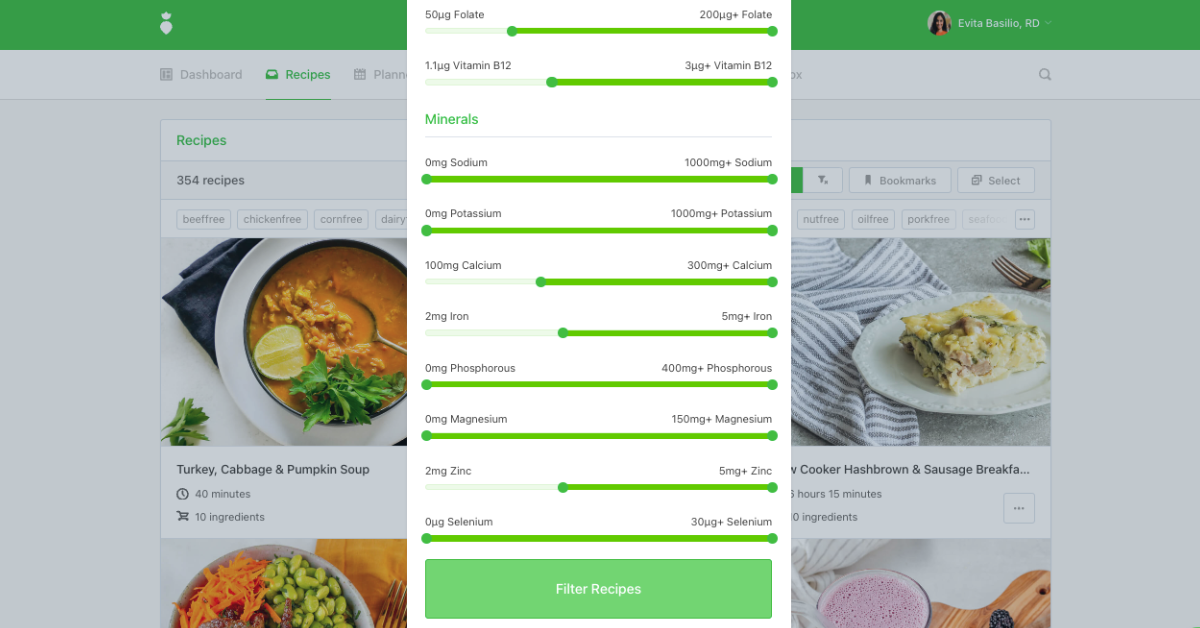
Eating Enough Calories
Cancer increases nutrition needs and a treatment side effect is often lower appetite. The National Cancer Institute recommends people with cancer eat plenty of protein and calories when they can to help keep up strength and rebuild tissues harmed by cancer treatment.
Preparing simple calorie and protein-dense meals and snacks and scheduling these every few hours can help clients stay on top of their nutritional needs. During your client’s nutrition assessment, find out what time of day they have a larger appetite and then schedule a bigger meal when they feel their best.
Tip: Use That Clean Life’s free Nutrition Assessment Tool to collect the right information so you can build great nutrition plans.
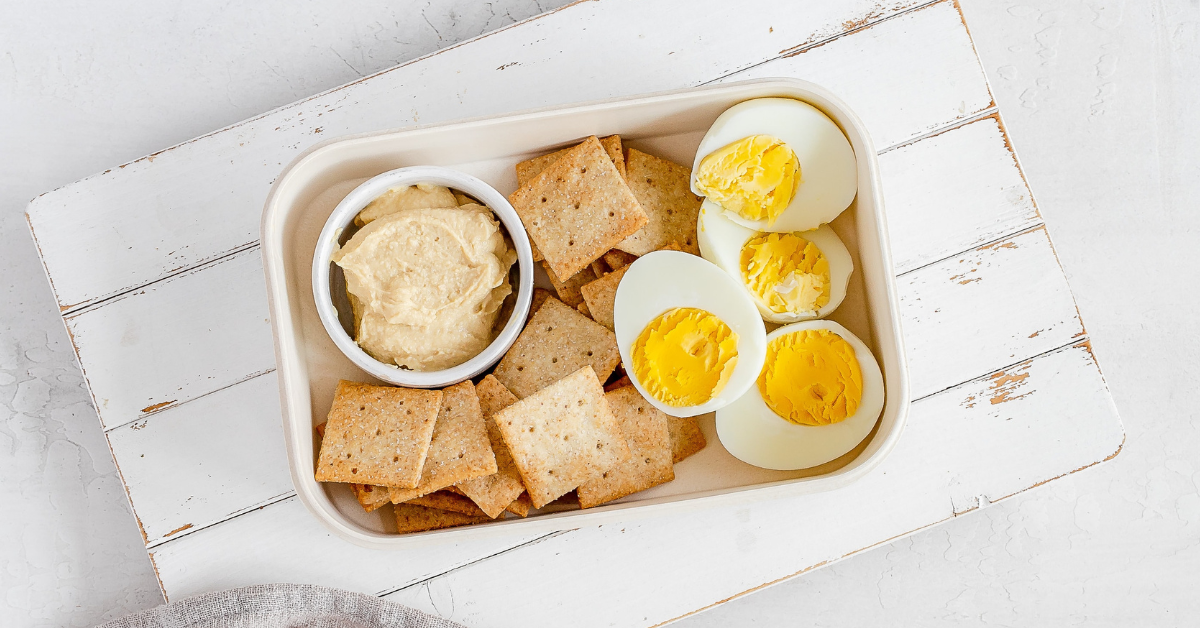
Meal Ideas to Manage Side Effects
Easy-to-Eat Foods
Treatment side effects including loss of appetite, changes in taste or smell, and nausea and vomiting can get in the way of consuming enough food and fluids.
To prevent nausea, meals and snacks can be scheduled every few hours as an empty stomach can worsen nausea. If a client is nauseous, foods like rice, crackers, and toast are easy on the stomach.
If a client has mouth sores or pain, it can be easier to eat soft, mild foods, such as hummus, kefir, scrambled eggs, pasta, oats, and well-cooked meats, beans, and vegetables.
A breakfast option like Blueberry Coconut Kefir Oatmeal provides a quick, high-fiber, gut-friendly, and easy-to-eat meal.
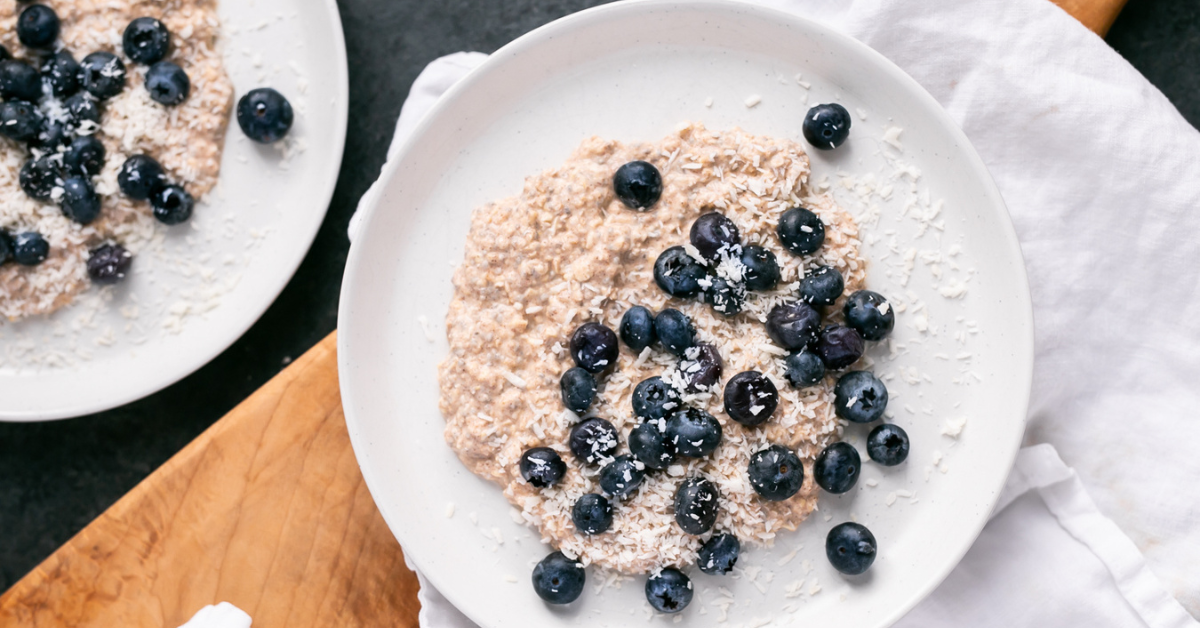
Fluids & Moistened Foods
Teaching clients to drink plenty of fluids will prevent dehydration and replace possible fluid losses from diarrhea. You can provide recipe ideas for liquids such as soups, smoothies, and juices that add calories and nutrients like sodium, potassium, magnesium, calcium, and phosphorus. Chamomile, mint, ginger, and lemon teas can be added to your client’s daily routine to soothe digestion and ease nausea and vomiting.
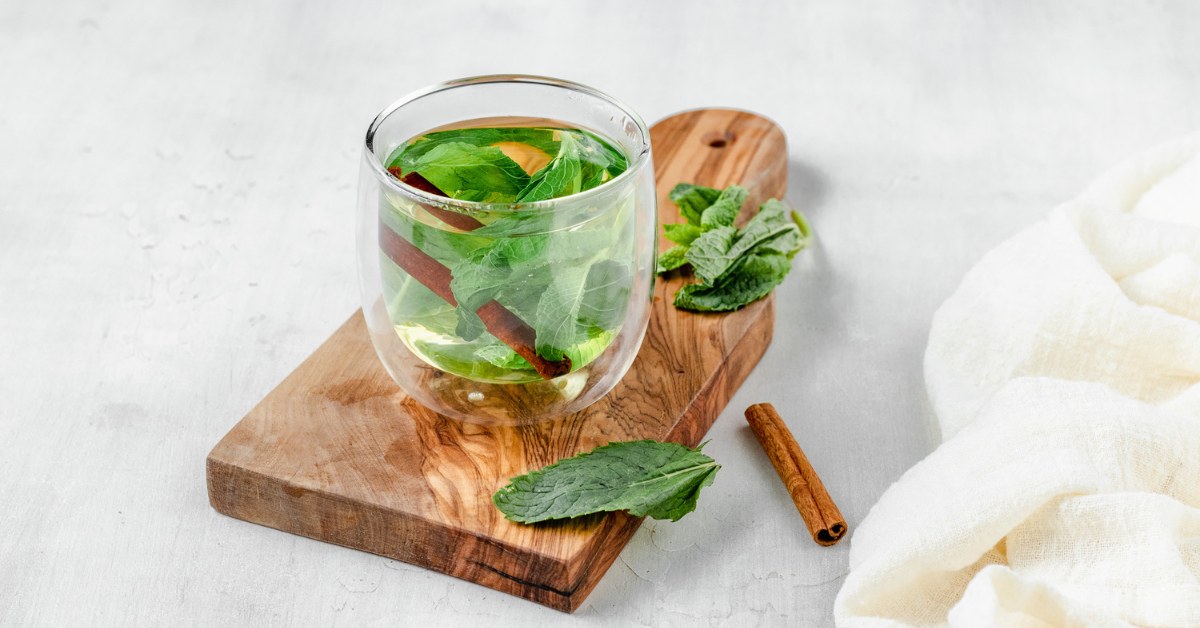
Adding meals that use moistened foods with sauces and broths or choosing pureed options can be easier to chew and swallow and help with dry mouth.
Tip: Use That Clean Life's "drink", "smoothie" or "soup" filter to find fun and hydrating recipes to help your clients reach their daily fluid needs. Use the "pureed" filter to find soft, pureed recipes.
Preparing Food Safely During Cancer Treatment
Some cancer treatments can weaken the immune system, making clients prone to foodborne illness. Help clients take special care in how they handle and prepare meals in their nutrition plan.
Provide a Prep Guide
A prep guide lays out the exact steps your client must take to put their meal plan to use. It takes things a step further than simply providing a set of recipes and a grocery list. A prep guide breaks your client's week down day-by-day so that they know exactly when to cook, what to make, and how to safely store leftovers.
Providing a prep guide alongside your meal plans will help keep your clients’ food safe and prevent overwhelm when it comes to prepping and packing their meals.
Tip: Save time by using That Clean Life’s templates, which come with a pre-made meal plan and prep guide. All templates are customizable, so if you modify one of our pre-made programs, you can easily edit the prep guide.
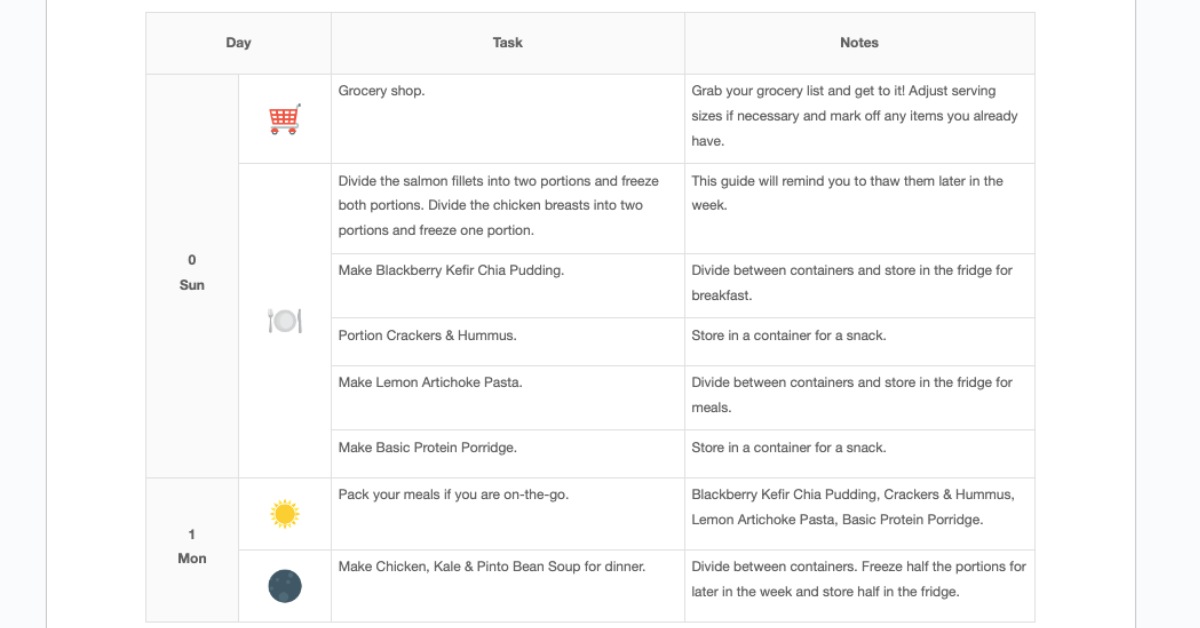
Ready to create your Cancer Support Nutrition Plan? Get started with That Clean Life’s ready-to-use Cancer Support Program and Plant-Based Cancer Support Program.
These approachable plans contain simple meals and snacks to help clients increase their calorie and protein intake. The recipes provide the proper nutrients and foods to mitigate nutrition-related side effects, help the body rebuild tissue, and boost energy and strength.
Each plan includes a 7-day meal plan, an itemized shopping list, appropriate recipes, a prep guide, and supporting evidence. The programs are fully customizable based on your client’s energy needs and preferences.
If you are not yet a member of That Clean Life, you can learn more and sign up here.

